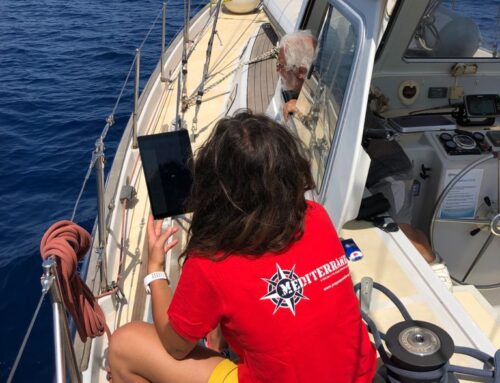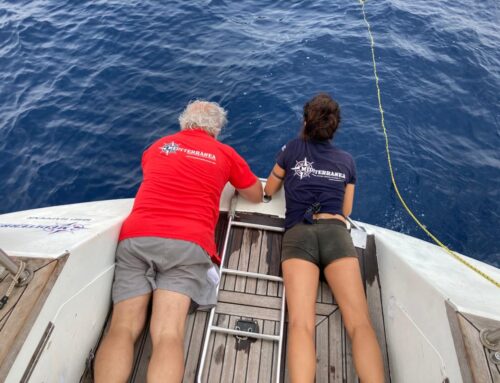
(by Simone Perotti)
I reach my meeting with Theodossios Tassios unprepared. When I read his resume I realise that it would be impossible to prepare an interview with a man who is an educational engineer, Professor Emeritus of Athens University, a member of the Turin Science Academy, Dr. Honoris Causa, Liegi, Nanjing, Cyprus Universities and Democritos and Aristotele (Greece) Universities, Chairman of the International Science Association, and also (and, above all) Honorary Chairman of the Hellenic Society of Philosophy, author of 400 articles and more than 30 books that range from mechanics to engineering, from the conservation of monuments to history, philosophy and education. And I wasn’t wrong.
Theodossios Tassios has such a wide-ranging vision that it brings to mind the very idea of the Paideia, while he himself represents the genius of Leonardo, with ability to design dams while at the same time raising the question of knowledge. When we arrive, a little late, we find him, needless to say, seated at a desk drawing a fire signalling tower of ancient Crete, with a beautiful pen stroke. “I am studying how to restructure a number of these and want to organise a huge presentation …” he says, almost in a tone of apology. And our conversation kicks off right away. Professor, you have a very wide angular vision: “Yes, but I pay for that in depth”. Would you want it to be the other way round? “Oh no. A narrow angle leads straight to fascism, totalitarianism. The width of the angle is culture itself, closing it leads to a specialized idea of knowledge, without horizons, and thus indeed towards ignorance”.
Starting a conversation with an engineer using a geometrical metaphor seems to me to be very appropriate. “When a person is placed on the path of knowledge, you are building contemporaneity”. Today we are running this risk, why? “And seventy years ago, did we not run the same risk? In the early Twentieth century were we not in the same position? Do world wars perhaps not come from this? It is when the echo and effects of Humanism fade, that the angle closes. The great political theories of the Twentieth Century are the result of distancing ourselves from the humanistic concept, from the spirituality of humanism”. I feel that our conversation is crumbling and exploding, and I seriously ask myself if I should perhaps stop asking questions and simply listen. I continue only to help him with his Italian, which he speaks very well but, because he wants to speak correctly, makes him go slowly. “Marx wrote his PhD dissertation on Democritus, but clearly he did not benefit by this, considering that he forgot the importance of the arts. Markuse was forced to intervene, some time later, asserting that art is more revolutionary that all the works of Brecht”. Theodossios Tassios cites authors and texts from many different fields of knowledge, and he does so without the least affectation, but simply to support ideas.
I ask him if it was not perhaps the onset of technological and economic supremacies in the early Twentieth Century that closed that angle and distanced us from Humanism. He firmly corrects me right away. “A cruel man with a stone kills one man. With a pistol he kills six, with a machine gun twenty, and with a bomb a thousand, but his cruelty is the same. Technology is not to blame. Technology does nothing more than amplify the cruelty of that man. Science is not to blame, the blame always lies with man. It is a question which is associated to responsibility, which has a very high cost: time, study, commitment, time to allow culture to take root within us …”. He’s right of course. I try asking him who should have kept that angle open, keeping us close to the humanistic vision that we have abandoned. “The individual, quite naturally! Time is his, and he should have understood that the time dedicated to arts was time dedicated to the culture of morality. One needs to experience moral culture, not simply study it, one needs to live values, which do not come from the exterior but from within us, and try the resistance of man, but also generate emotions and enthusiasm”. I admit to feeling a shiver, which is something that a chat with someone I do not know rarely produces, however interesting it may be. That his reasoning would lead to two simple words, which are today almost never used, like enthusiasm and emotion, was something I was not expecting.
Professor, why did we take the wrong direction? “I don’t know the answer to that, it is a pertinent question but far too complex for me. People perhaps wanted to work less. Taking the apparently easy path, but more complex in terms of results. Sacrifice, rest, commitment, we should have invested in this different direction. And yet Majakovskij wrote poems about technology, but they wouldn’t listen to him. Not even in Russia. What was needed was a catalyser, like in chemistry, something that would speed up the process. Obviously some tried. That is what happened with religion, which however focuses on transcendence, which is not interesting. Or with technocracy, the creed of the scientific world that you can do without almost anything other than science and the technology that applies it, but the result was totalitarianism, economic imperialism, and above all fascism. It would have been enough to look at life! Are the problems that we face every day in our lives logical? You cannot resolve them with Logos, but only with Ethos”. There are only three of us in the room but I sense that we want to break out in an applause. This man should be speaking on television every night, with simultaneous broadcasting. And not only because of what he says, but because of the passion and emotion he puts into what he says. His vaguely Mephistophelian face, is also kind and seraphic, and lights up with expression with every valid concept. His pauses, while he searches for an idea and the translation, leave us hanging, almost breathless. “Think of globalisation. It is by no means new. Hellenism, then the Latin and Anglo-Saxon cultures, socialism itself, which originates with an internationalist vocation, all attempted to expand, and globalise. People are prone to this. But Ethos comes from within, and it was marginalised by Science. This marginalisation is responsible for a great deal. Perhaps even you and I have been marginalised …”. We smile. I explain that perhaps the Mediterranea is an expedition that is taking a chance, escaping from this condition of marginalisation. He nods, pleased, and claps twice, almost as though to applaud.
To go back to what we were saying, I try to change the perspective. I ask him if the “Interpretation of dreams” (Sigmund Freud -1900 editor’s note) and the school of psychoanalysis as a whole did perhaps make this mistake, thinking that it was possible to study the inner being scientifically. “Freud was very useful in helping us to understand how to treat neuroses. Then he tried to explain God through the Oedipus complex, and he lost himself. Jung corrected this deviation, thank heavens! But in any case, perhaps the direction may have been right, only that the results were few”.
I try not to miss anything, I write almost feverishly, but Theodossios Tassios continuously introduces elements of perspective, and it’s not easy to keep up. “Humanity is in a horrendous state, climate changes, millions of persons are starving, this is something we should never forget. We are here enjoying the luxury of being able to speculate on humanity, looking for ideas and schools of thought for an age which is in crisis, but we need immediate solutions for the serious problems of the planet, otherwise it will all be pointless”. I jot down the word concreteness along with the already very long list of qualities of this man. “Do you know what man is made of? Three elements: matter that comes from the cosmos, matter that comes from the subconscious, and relationships. We need to agree on the nature of the human condition. We are not only stomach, and what is more the Ego does not exist”. This is theoretical philosophy, and I stand in awe of this conversation, which is becoming deeper and deeper. “During the dictatorship, a university professor was isolated completely, even from the jailors, for six months. When he was freed he had become autistic. Being completely alone had annihilated him, his Ego could not exist without relationships. The Ego is coincidence of relationships, starting from infants, who first experiences inanimate objects and then animated objects which have an impact on their emotions. We need a morality that comes from within, in this sense, do you understand? Something which has nothing to do with Kant or the Ten Commandments”. I almost embrace him, but I try to follow his line of thought while I can. How can it be done, Professor? “We socialists seventy years ago were saying that a fifteen year programme was needed for new education. The educational system must be completely re-established, above all the relationship between teachers and pupils. Don’t you see? When we put production and productivity before the time of conscience, we are causing enormous damage. I see it in the scourge of consumerism, which is nothing more than a moral attitude which has an impact on the economy. Even if today I see small signs of hope in the theories on the social responsibility of the company. When consumers stop buying products that do not respect the environment and workers, I will still hope. This approach may condition capitalism. Capitalism that we must force to conceive a number of essential points. For example that Art is one of the three cornerstones of man (together with Ethos and Logos, editor’s note) and not inessential, as so many believe”. I ask him to better explain the relationship of art with public life, the life of individuals and the State. “An excessive presence of the State in Art was a failure, this was the approach of dictatorships. The total non-involvement, on the basis of the North American model, was just as much of a failure, and led to mercantilism. Perhaps the best way is the European way. Certainly, the cuts to Art in periods of recession say a great deal about the role that is attributed to this cornerstone of man, which besides Ethos and Logos, is also imagination, fantasy and wonder, namely parts of our lives that strongly affect our psychic and physical well-being when they are limited or extended. If however the social contract sets forth that it is the State who is responsible for the well-being of citizens and then it does not invest in art, something is wrong. No one goes on strike when they take music out of schools. Why? Do you see that we keep coming back to choices of the individual?”. But people are not thinking about art, they are worried about the recession Professor … “Which means that structural interventions are needed to disseminate art and culture, we need to bring music and the culture of art to our streets and squares, so that people become accustomed to enjoying them and then ask and demand them! We need to support libraries, paying their electrical bills, and even encourage private intervention in art, be it with all the precautions of liberty and control required. In other words, more money must go to culture, otherwise we are not never going to straighten ourselves out, we just can’t do it!”. His says his last words with an extraordinary vibrating passion and force. So much so that he apologies for his emotion. His emotion, on the other hand, is exactly what I thank him for. His closing remark is marvellous. “We have to re-legitimise emotion. Nor should we be ashamed of our emotionality. On the other hand the potassium ion which goes back and forth stitching perception between neurons does not know what it is carrying, whether it is information or emotions, so what fault is it of ours if we become emotional?”
No fault at all, Theodossios Tassios. None whatsoever.





Leave A Comment